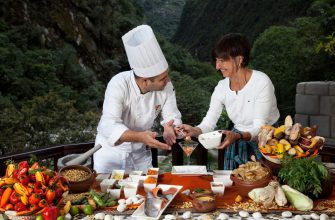Savoring the Richness of Portuguese Cuisine
Portuguese cuisine is as diverse as the country’s landscape, with each region boasting its unique dishes and flavors. Portugal’s gastronomy reflects the nation’s history, from the seafaring explorations in the Age of Discovery to the cultural influences from Africa, Asia, and South America.
- The Heart of Portuguese Cuisine: Traditional Dishes
- A Taste of the Sea: Portugal’s Seafood Tradition
- Portuguese Sweets: A Culinary Journey in Itself
- Portuguese Cuisine Beyond Borders
- Portuguese Cheese: A World to Discover
- The Importance of Wine in Portuguese Cuisine
- The Global Impact of Portuguese Breads
- Portugal’s Culinary Influence in Asia
- Concluding the Culinary Tour: A Symphony of Flavors
The Heart of Portuguese Cuisine: Traditional Dishes
Every culinary journey in Portugal starts with traditional dishes. From the coastlines to the mountains, the country’s gastronomy is rich in seafood and meat, flavored with spices like piri-piri and black pepper. One of the most beloved dishes is Bacalhau, salted cod prepared in countless ways, from grilled to baked with cream and potatoes.
Frango Piri-Piri, spicy chicken grilled to perfection, is another testament to Portugal’s love for hearty flavors. For meat lovers, a must-try is Alentejo-style pork, succulent pork cooked with clams, white wine, and paprika. The end result is a delightful mix of land and sea flavors, a true reflection of Portugal’s geography.
A Taste of the Sea: Portugal’s Seafood Tradition
With an extensive coastline, Portugal is heaven for seafood lovers. Fresh sardines, grilled and served with a sprinkle of sea salt, are a summer staple. Caldeirada, a fish stew mixed with potatoes, peppers, and tomatoes, is another seafood delight that brings families together.
Beyond fish, shellfish dishes are an integral part of Portuguese cuisine. From Ameijoas à Bulhão Pato, clams in a garlic and white wine sauce, to Arroz de Marisco, a savory seafood rice, the country’s shellfish dishes are truly tantalizing.
Portuguese Sweets: A Culinary Journey in Itself
Portugal’s sweet tooth is famous worldwide. Pastel de Nata, the creamy egg custard tart, is a delight worth savoring. Other must-try desserts include Arroz Doce, a sweet rice pudding sprinkled with cinnamon, and Pão de Ló, a sponge cake that melts in your mouth.
Portuguese Cuisine Beyond Borders
Portugal’s culinary influence extends beyond its borders. The country’s explorers brought back spices, flavors, and cooking techniques from different corners of the world, influencing global cuisine. For instance, Piri-Piri, a fiery chili pepper, has become a staple in many African and Asian cuisines, while Tempura, a popular cooking style in Japan, is believed to have Portuguese roots.
Portuguese Cheese: A World to Discover
Portuguese cheese is a treasure trove of flavors and textures. From the buttery and creamy Serra da Estrela, made from sheep’s milk, to the firm and slightly spicy Castelo Branco, Portuguese cheese is a delight for the senses. Cheese is often enjoyed with a slice of fresh bread, drizzled with olive oil, or even topped with a spoonful of local honey.
The Importance of Wine in Portuguese Cuisine
No discussion of Portuguese cuisine would be complete without mentioning its wines. The country is renowned for its diverse range of wines, from the effervescent Vinho Verde in the Minho region to the full-bodied, complex reds from Douro. Portugal is also home to Port wine, a sweet, fortified wine often enjoyed as a dessert wine, and known around the world for its rich, robust flavors.
The Global Impact of Portuguese Breads
Portuguese breads, like Pão de Mafra and Broa de Milho, have made their mark worldwide. The sturdy and crusty Pão de Mafra is perfect for sopping up sauces, while Broa de Milho, a cornbread with a distinct texture, pairs wonderfully with soups and stews. Portuguese breads have been adapted in various forms in countries like Brazil, Angola, and Mozambique, reflecting the global impact of Portuguese culinary traditions.
Portugal’s Culinary Influence in Asia
One of the most fascinating aspects of Portuguese cuisine is its influence on Asian gastronomy, particularly in places like Macau and Goa. The blend of Portuguese cooking techniques with local ingredients led to the creation of unique dishes, such as Vindaloo, a spicy meat curry in Goa, and African chicken, a Macanese dish that combines the flavors of Africa, Europe, and Asia.
Concluding the Culinary Tour: A Symphony of Flavors
Portuguese cuisine is a symphony of flavors, with each dish telling a story of exploration, tradition, and cultural exchange. It offers a culinary journey that goes beyond the palate, transporting you to the country’s verdant vineyards, bustling fish markets, and warm, inviting kitchens. Whether you’re sampling a cheese platter in Lisbon, savoring a seafood stew in Porto, or discovering the global impact of Portuguese gastronomy, the richness and diversity of Portuguese cuisine is truly a culinary tour worth taking.
